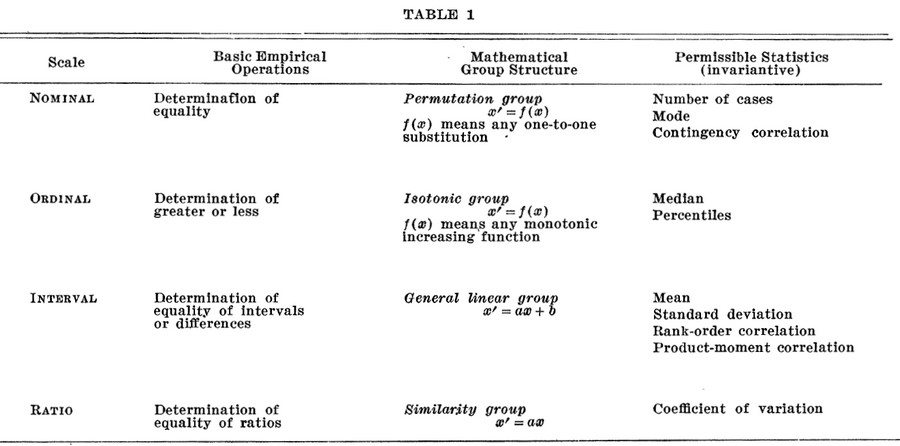About
According to Stevens theory (On the Theory of Scales of Measurement), the four scales of measurement are:
- nominal
- ordinal
- interval
- ratio
Each of these four levels refers to the relationship between the values of the variable.
It is also helpful to think of the scales of measurement as building in complexity, from the most basic (nominal) to the most complex (ratio).
Each higher level of measurement includes aspects of those before it.
| Level | Scale | Application | Basic Empirical Operations | Statistics |
|---|---|---|---|---|
| 1 | Nominal | Categorization | Equality | Number of cases , mode, Contingency correlation |
| 2 | Ordinal | Order | Greater or less | median, percentile |
| 3 | Interval | Distance | Equality of difference or difference | Mean, Standard deviation, Rank-order correlation, Product-moment correlation |
| 4 | Ratio | Absolute zero | Equality of Ratios | Coefficient of variation |
Articles Related
Table 1
Table 1 of Stevens theory (On the Theory of Scales of Measurement)
Levels
Levels are type of measurement.
Nominal
A Nominal Measurement is the type of measurement in which the values of the variable are names and not numerical at all. It' s used to assign individual cases to categories.
The Country of Origin is a nominal variable
Ordinal
The Ordinal Measurement involves collecting information in which the order is significant and is used to rank order cases.
Interval
Interval measurements give:
- distance between two values
- and order (rank) between this distances
Ratio
Ratio Measurement gets its name from the fact that meaningful fraction (or ratio) can be constructed with a ratio variable.

